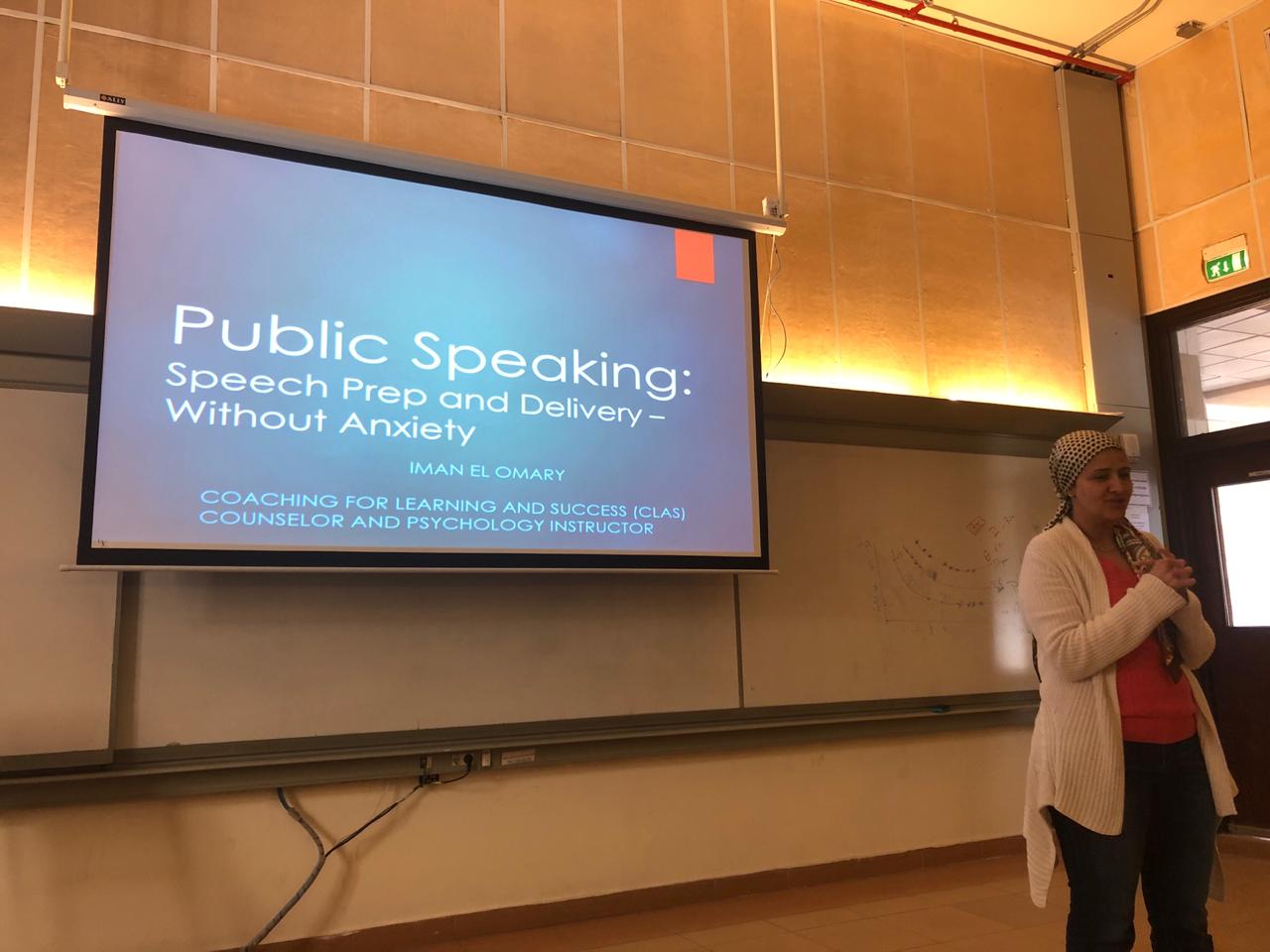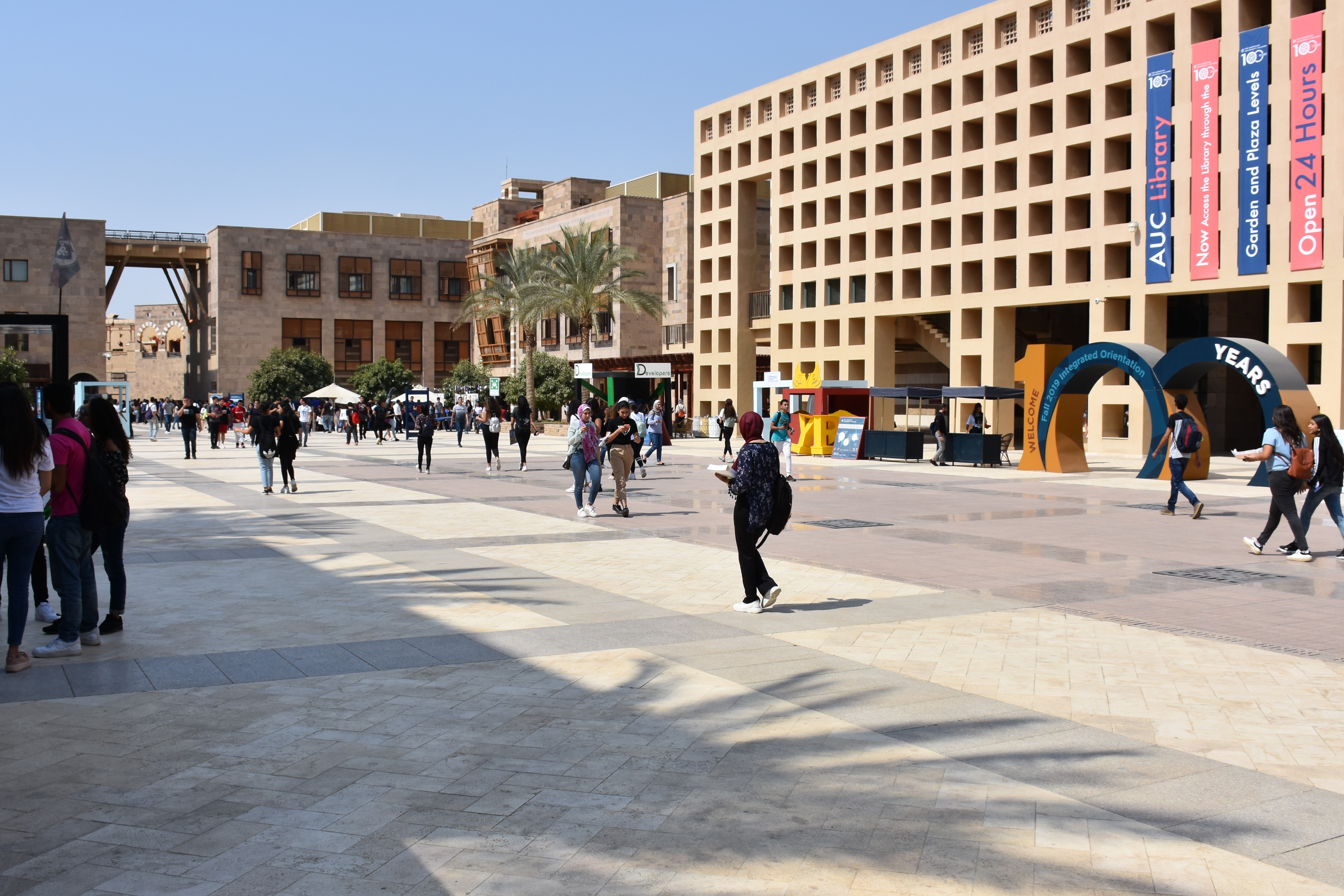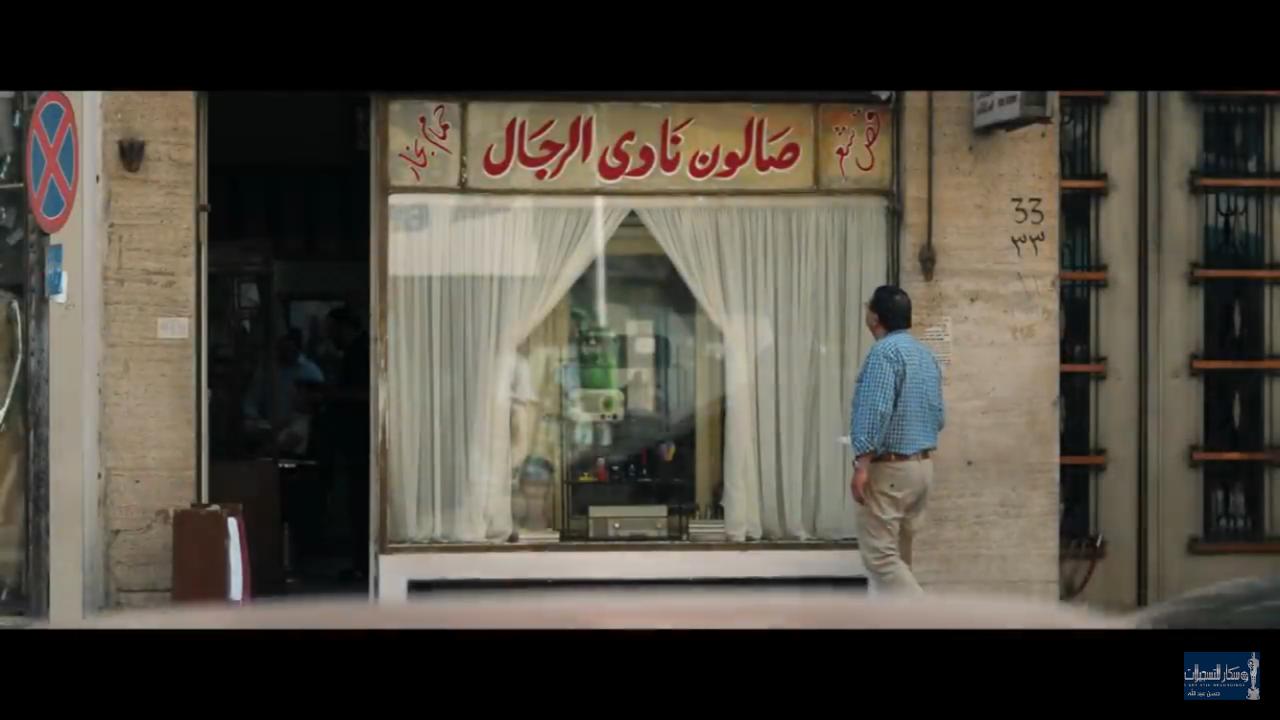Beyond the Gate: Omar “El Mogrem” Mohsen
“We will not stop until we realize Omar’s dream of freedom.” – Mohamed Meligy’12.
On February 5, 2012, AUC declared a day of mourning to honor Omar Aly Mohsen (1989-2012), a 20-year-old AUC student activist who was martyred at the 2012 Port Said Stadium riot four days earlier alongside 73 other spectators.
After the blow of the final whistle, thousands of Al Masry Club fans rushed onto the field, chasing and attacking Al Ahly fans – one of them being Omar Mohsen.
The late Omar Mohsen was scheduled to graduate that spring with an undergraduate degree in Economics. He was a witness to the 2011 revolution, an advocate for the working staff, and an infectious personality whose memory continues to outlive his passing 12 years later. In 2013, the university commemorated his legacy by dedicating the gate between Prince Alwaleed Bin Talall Bin Abdulaziz Allsaud hall and the School of Science and Engineering to him; the Omar Mohsen Gate.
Kim Fox, professor of practice in the Journalism and Mass Communication department who has instructed several students on their Audio Production projects about Mohsen, expressed how people do not understand the gravity of naming a gate after someone.
She referenced the recent events, when students demanded that the university name Bus Gate, The Palestinian Gate to honor the martyrs in Gaza, describing how people were confused by the request. Fox cited that the university’s architecture is its currency, and utilizing it is how they would take a stance.
Mohsen’s legacy is not just a product of martyrdom but a story of reinforcing equality within his community, long recognized before his passing. His most enduring efforts involve his participation in strikes calling for the fair treatment of AUC’s janitorial staff and security personnel.
According to a video of Mohsen’s memorial, a testament to his dedication and personality was the iconic and witty chant, “Khafy mena ya Lisa el AUC gayeen!” (“Be scared of us, Lisa; the AUC is coming!”)
Through tears, President of the Workers Union, Waleed Shebl, expressed the magnitude of Mohsen’s impact in the same memorial video.
“For the rest of my life, whenever I have pressure at work, or I encounter hardships, or someone is taking advantage of me, I remember this catchphrase immediately,” he said.
Mohsen took it a step further by being intricately involved in helping workers gain their rights. It was that dynamic character that brought people together, according to Fox.
“He touched on everybody, especially when you get someone who touches the staff… the staff sometimes are the invisible people, and we’re guilty of sort of just walking by them and not greeting them,” elaborated Fox.
According to an archival piece on AUC Knowledge Fountain, Mohsen, nicknamed “El Mogrem” (“The Troublemaker”), was described as a playful and refreshing character who softened the blow of post-revolution life for the staff and his peers. Even amidst the protests, he managed to draw a smile or laugh from everyone around.
Ronnie Close, author of Cairo Ultras and an associate professor in the Journalism and Mass Communication department, explains that Mohsen, like many people his age, was attracted to the buzz and energy of a football game and reflected his down-to-earth personality.
“ It’s like a release for people; it was a space where they could go and express themselves and be together,” said Close. “You had this mixing of people from different social classes, and I think that’s something that you don’t generally have in Egypt. So for people to form friendships across those kinds of divides, and for a kind of equality amongst people from different social backgrounds, is actually a very radical thing, if you think about it.”
Mohsen’s contribution to his community was unmistakable, and the commencement of Mohsen’s class reflected the influence he had.
During the commencement, former AUC President Lisa Anderson asked his father to collect two awards for Mohsen, one being the prized President’s Cup, and his brother accepted his diploma on his behalf at the call of Omar Mohsen’s name.
“When he was supposed to graduate, there was a trophy in a placard in a chair where he would’ve sat for commencement. So that was just like, ‘Oh, my goodness…this kid should be here,’” continued Fox.
Mohsen’s family, friends, and faculty spoke of him as “Omar,” someone more significant than the sum of his tragedy.
“Your takeaway should be Omar would want us to be laughing… he doesn’t want us to be sad about his life. This was not his personality. So, we want to make sure we keep some balance there, reflect on him in a way that is really true to his character,” added Fox.
A tradition was then established. All commencements now feature the Omar Mohsen Athletic Achievement Cup, a celebration of him and his inspiring love for football that graces the seat that should have been his at his graduation. His life is anything but a fleeting moment lost in the infinity of his university’s future.
The Omar Mohsen Endowed Public School Scholarship was also established in his name, awarded to Egyptian public high school athletes who demonstrate academic potential and financial need.
Omar Mohsen is not just succeeded by friends and family, but also a community he defended with a passion that challenged the passage of time.



